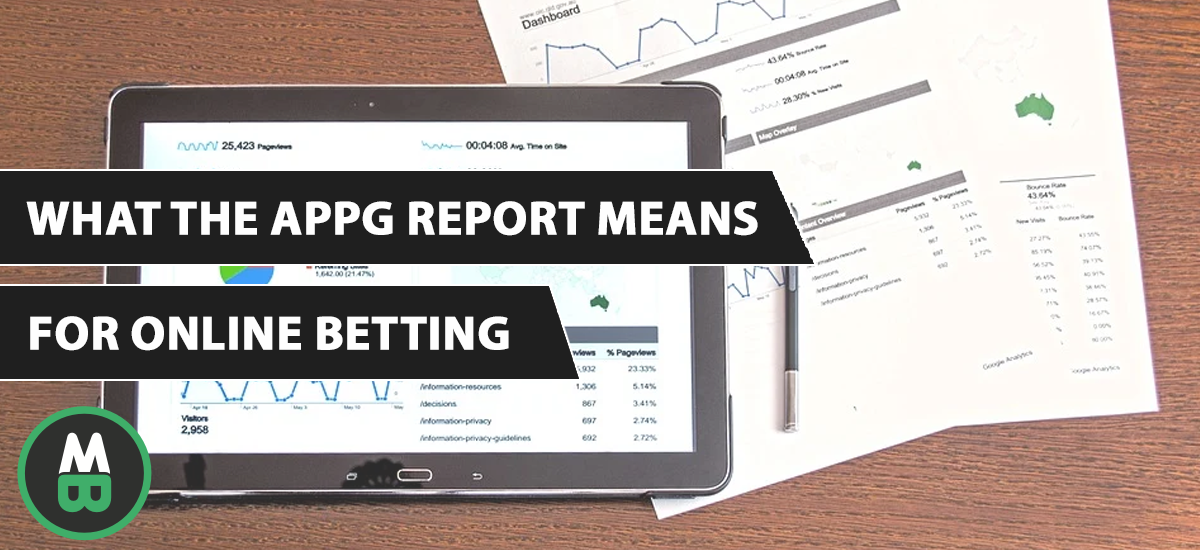What the APPG Report Means For Online Betting
June 17, 2020

The massive growth in the UK gambling industry has been slowing in the past four years due to the impact of increased regulation, higher taxes and consistently negative media primarily focused on the issue of problem gamblers. Supporting about 100,000 jobs directly and indirectly, and generating some £3 billion a year in tax for the UK government, gambling companies are desperate to avoid further regulatory initiatives that may strangle the ability of their businesses to deliver growth and profits in forthcoming years.
But the most recent recommendations of the Gambling-Related Harm All Party Parliamentary Group (APPG) may well further damage the industry’s bottom line, and have severe repercussions for online betting in particular. On 16 June the APPG issued its final report on online gambling harm and its members, MPs from across the political spectrum, have endorsed thirty recommendations which they hope will be taken forward by Oliver Dowden, Secretary of State for Digital, Culture, Media and Sport.
The extensive list of “must-do’s” include the introduction of a complete ban on advertising, a ban on all VIP schemes and incentives, online slot stake limits of £2, a mandatory “smart levy” to be paid by gambling companies to fund independent research, education, prevention and treatment and a complete overhaul of the regulatory structure. Particular criticism is levied at the regulatory body, the Gambling Commission, which the APPG reckons is not fit for purpose. The MPs recommend the introduction of a Gambling Ombudsman, and an overhaul of gambling regulation which should ultimately be encapsulated in a new Gambling Act (the current Act was introduced back in the very early days on online gambling, in 2005).
As you can imagine, a number of these recommendations are causing considerable consternation and operators, their representative body – the Betting and Gaming Council (BGC), and the Gambling Commission are all keen to add their tuppence worth to the debate before the government makes any firm decisions based on the report.
The BGC has already responded, saying that there is no evidence problem gambling has become more prevalent and that the measures proposed may in fact drive gamblers to the black market, illegal offshore operators which have no protections to limit problem gambling.
The BGC says “Over 20 million adults enjoy gambling occasionally, whether that’s on the National Lottery, bingo, sports or gaming, including online, and the overwhelming majority of them do so safely. Both the Regulator and the Government have both made it clear that there is in fact no evidence that problem gambling has increased, but as an industry we have to keep doing more to help those people for whom gambling does become a problem.
“Since the BGC was formed as the standards body last year, we have driven a number of significant changes across the industry – from advertising restrictions, encouraging deposit limits, monitoring play and spend so we can intervene to prevent customers getting into difficulties, closing online accounts, introducing strict new ID and age verifications, implementing the ban on credit cards and massively increasing funding for research, education and treatment.
It is reasonable to imagine that the Gambling Commission will be equally dismayed at the new proposals and take umbrage at the assertion that the organisation is not fit for purpose. The Commission regulates commercial gambling in conjunction with licensing authorities and also oversees the National Lottery. Neil McArthur, Chief Executive, has made considerable strides since his appointment to the top job in 2018 and we are certain he will seek to refute the APPG’s criticisms. Following a review of online gambling in the year of his appointment, Mr McArthur has brought in a number of measures intended to reduce problem online gambling, including the recent ban on the use of credit cards, tighter age and ID verification rules, improved customer interaction guidelines, and measures to deal with unfair terms and conditions. He and his team intend to address the issue of VIP incentives, raised by the APPG, this year together with improvements regarding online advertising and online gambling products.
Online gambling operators, the BGC and the Gambling Commission have all had the chance to input to the APPG report but they will be disappointed with its conclusions. The range of measures proposed is extensive but some of the recommendations will not be surprising to those who have followed the APPG’s progress in the last 12 months. With the economy currently on its knees and the online betting industry suffering due to the dearth of live sport for three months, the government may not consider to implement the APPG report in its entirety – with consequent negative impacts on the Treasury coffers – but we do expect that it may cherry pick from the recommendations.
Comments